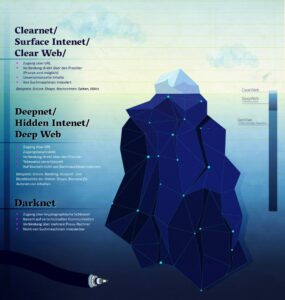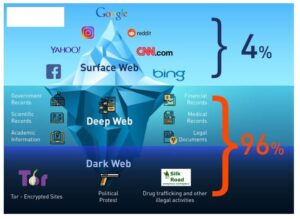
By promoting awareness, education, and adherence to ethical practices, we can collectively combat credit card dump fraud and create a safer financial environment for everyone. Together, we can work towards a future where digital transactions are secure, and individuals can make financial transactions with peace of mind. Engaging in credit card dump activities is illegal and carries severe legal consequences. Those involved in credit card dump activities can face criminal charges, leading to fines, imprisonment, or both.
Is It Illegal To Access The Dark Web?
By adding an extra layer of authentication, financial institutions reduce the risk of fraudulent activities during transactions. This proven technology, seamlessly working in the background, analyses transaction data and authenticates users in real-time, ensuring only legitimate transactions proceed. In the relentless battle against cyber threats, financial institutions must deploy proactive strategies and technologies to mitigate risks and protect customers, especially in the context of compromised credit card feeds. Additionally, securing transactions with a 3-D Secure ACS (Access Control Server) solution plays a pivotal role in bolstering the overall fraud prevention strategy. In May 2019, nearly 140 million user accounts were compromised when the popular Australian graphic design website, Canva, was breached by hackers.
Topics And Products Sold
Typically, carding shops release free data in the thousands, but B1ack’s Stash’s strategy set it ahead of its competition, similar to BidenCash’s tactic last year, where they leaked 2 million stolen cards. A credit card dump is a term used to describe the unauthorized access and use of stolen credit card data. Criminals obtain this information through various means, such as hacking into databases, installing skimming devices at ATMs or gas pumps, or purchasing data from online black markets. The repercussions of dark web credit card marketplaces, including the rise and fall of Joker’s Stash, extend beyond monetary losses. Financial institutions shoulder increased operational costs tied to investigating fraudulent activities and failed authentication attempts.
- The use of JavaScript-sniffers, also known as Magecart, has led to a significant increase in stolen payment card data.
- Multiple people who reviewed the database shared by my source confirmed that the same credit card records also could be found in a more redacted form simply by searching the BriansClub Web site with a valid, properly-funded account.
- Most recently, credit card dump attacks have been happening on a larger scale, sometimes affecting millions.
- “BriansClub,” one of the largest underground stores for buying stolen credit card data, has itself been hacked.
- Use this guide to learn how to easily automate supply chain risk reports with Chat GPT and news data.
Since Real and Rare serves vendors as well as consumers, it offers its users a referral program that provides them with their own personal referral URLs, which they can hand to new users and get a 10% commission for every purchase they make. This is how the site admins encourage users to post their stolen credit card details on their site first. It is important to note that credit card dumps are illegal and highly unethical. Engaging in such activities carries severe legal consequences and can lead to serious financial damage to both individuals and financial institutions.

The Anatomy Of Underground Credit Card Stores
It is important to stay informed about the latest security threats and continuously educate yourself on best practices for protecting your financial information. Cyberint, the Impactful Intelligence company, reduces risk by helping organizations detect and mitigate external cyber threats before they have an adverse impact. A team of global military-grade cybersecurity experts work alongside customers to rapidly detect, investigate, and disrupt relevant threats – before they have the chance to develop into major incidents. A dark web carding market named ‘BidenCash’ has released a massive dump of 1,221,551 credit cards to promote their marketplace, allowing anyone to download them for free to conduct financial fraud. These stats highlight the scale of credit card fraud on dark web markets.
A Hacker Turned A Popular AI Tool Into A Cybercrime Machine
Valued at approximately $15 million, Abacus Market is one of the most lucrative platforms in the dark web ecosystem. In 2024, the platform grew significantly in popularity, partly because of its strategic acquisition of users from a number of recently shut-down marketplaces, such as AlphaBay and Incognito Market, which had recently closed their doors. This time, the leaked data contains card numbers, expiration dates, and three-digit security codes (CVVs). The expiration for most cards reviewed by BleepingComputer ranges from 2025 to 2029, but we also spotted a few expired entries from 2023. Adding an extra layer of security, such as two-factor authentication (2FA), can help reduce fraud in online transactions.
AI Firm Says Its Technology Weaponised By Hackers

For legal reasons, we will not publicly disclose which marketplaces were used. Information in the listings was entered into a spreadsheet for data analysis and statistical calculations. A quick search on the card shop for the bank’s BINs revealed nearly 100 of its customers’s cards for sale, a mix of MasterCard dumps ranging in price from $26.60 to $44.80 apiece. Criminals often obtain the information in fullz through hacking or data leaks. If you have been the victim of a company’s data breach, there could be fullz with your data available for sale on the Internet. B1ack is notorious in these forums for distributing CCS/FULLZ—credit and debit cards along with full personal information, known as “FULLZ,” which contains enough data to commit identity theft or fraud—as freebies.
Learn the basics of credit card cards, including features, fees, and rewards to make informed decisions about your credit card usage. The price for cloned cards varies depending on the credit limit, with an average price of $171. These groups often originate from leaked credit card credentials, which have become a common phenomenon, particularly in the past months.
Legal Consequences Of Credit Card Dump Activities
Regarding the validity of the stolen payment card dataset, additional details such as user agents, IP addresses, dates of birth, and email addresses suggest with high confidence that the information is authentic and not generated. The validity of cards obtained through phishing can vary; however, they often demonstrate a relatively high validity rate due to several factors. Customer feedback from b1ack’s operations further corroborates this assessment.

Although there have been some strides in addressing these platforms, their persistence reveals the ongoing challenges in fighting cybercrime. The narrative surrounding Briansclub emphasizes the importance of increased awareness, improved cybersecurity strategies, and international cooperation to defend against the ongoing threats from digital crime networks. Being informed and taking proactive steps is essential for protecting oneself from the risks of the digital underworld. You can also limit your risk by being picky about your ATMs, where criminals sometimes install card skimming devices. These are hard to detect, but only using ATM machines inside banks or other physical buildings offers some protection, Thomas says. Unlike a credit card, a debit card is connected directly to your checking account, allowing fraudsters to immediately drain your account.
- Simultaneously, customers face the risks of identity theft, damaged credit scores, and the emotional toll of financial fraud.
- Card issuers and financial institutions are working to prevent the sale of stolen credit card information, but the black market remains a significant threat.
- Capital One, the fifth-largest credit card issuer in the United States, revealed in July 2019 that a hacker accessed the personal information of around 106 million customers and applicants in the U.S. and Canada.
- To make this theft more difficult, measures like personal information numbers (PINs) and security chips have been implemented, but hackers continue to find new ways to exploit weaknesses in the electronic payments system.
- The prevalence of credit card dump activities highlights the need for improved security measures in our financial systems.
- Stolen credit cards and their details are added and bought on these shops on an hourly basis, and more and more markets launch a matching forum and/or a Telegram channel to keep expanding and supporting criminal online activity.
These platforms provide a marketplace for payment card data stolen by a variety of actors, leading to further specialization in crime. While criminals in the past might have stolen card data for their own reuse in carding, modern criminals split into those who capture and skim card data, and carders who take stolen card data and use it to make illicit purchases. B1ack’s Stash is a dark web carding marketplace that specializes in the distribution of stolen credit and debit card information. Emerging on April 30, 2024, it quickly gained notoriety by releasing 1 million stolen payment card details for free, a strategy aimed at attracting cybercriminals to its platform. The market sells credit card information to users occasionally shares free credit card dumps (as seen below).
Why Security Leaders Prefer To Buy CTI Solution For SaaS Platforms In 2025
This allows them to create a cloned credit card that can be used to make purchases or withdrawals. Some of the more sophisticated underground shops even have a money-back guarantee on some of the data they sell. This often includes a “checker service,” a compromised merchant account they use to run dinky charges through to see if the card is still valid, Krebs says.
Unfortunately, as consumers, there is not much we can do to prevent it from happening. Credit card information will remain vulnerable when we use our credit cards to make purchases at companies. Carders tend to target specific sites that don’t have VBV or other protections against fraud. For fledgling criminals who don’t know how to use stolen credit cards, there are plenty of free and paid tutorials for carding on the dark web. Threat actors have leaked 1 million stolen credit cards for free online as a way to promote a fairly new and increasingly popular cybercriminal site dedicated to…selling payment-card credentials.



